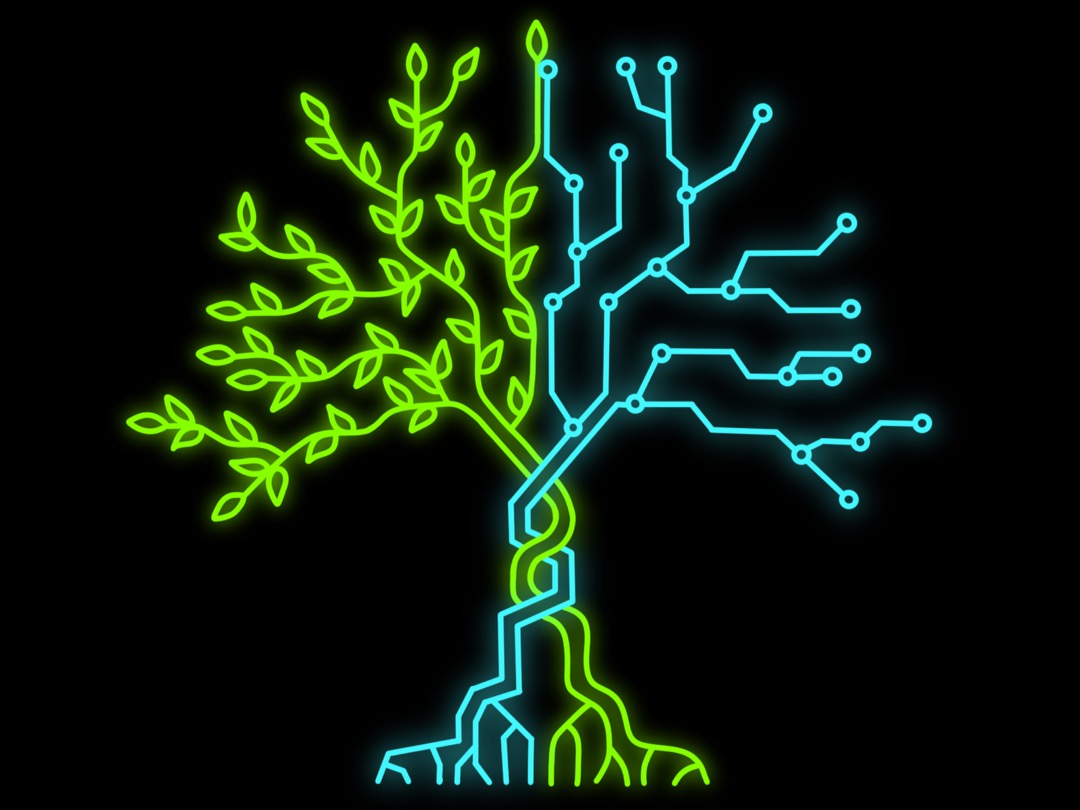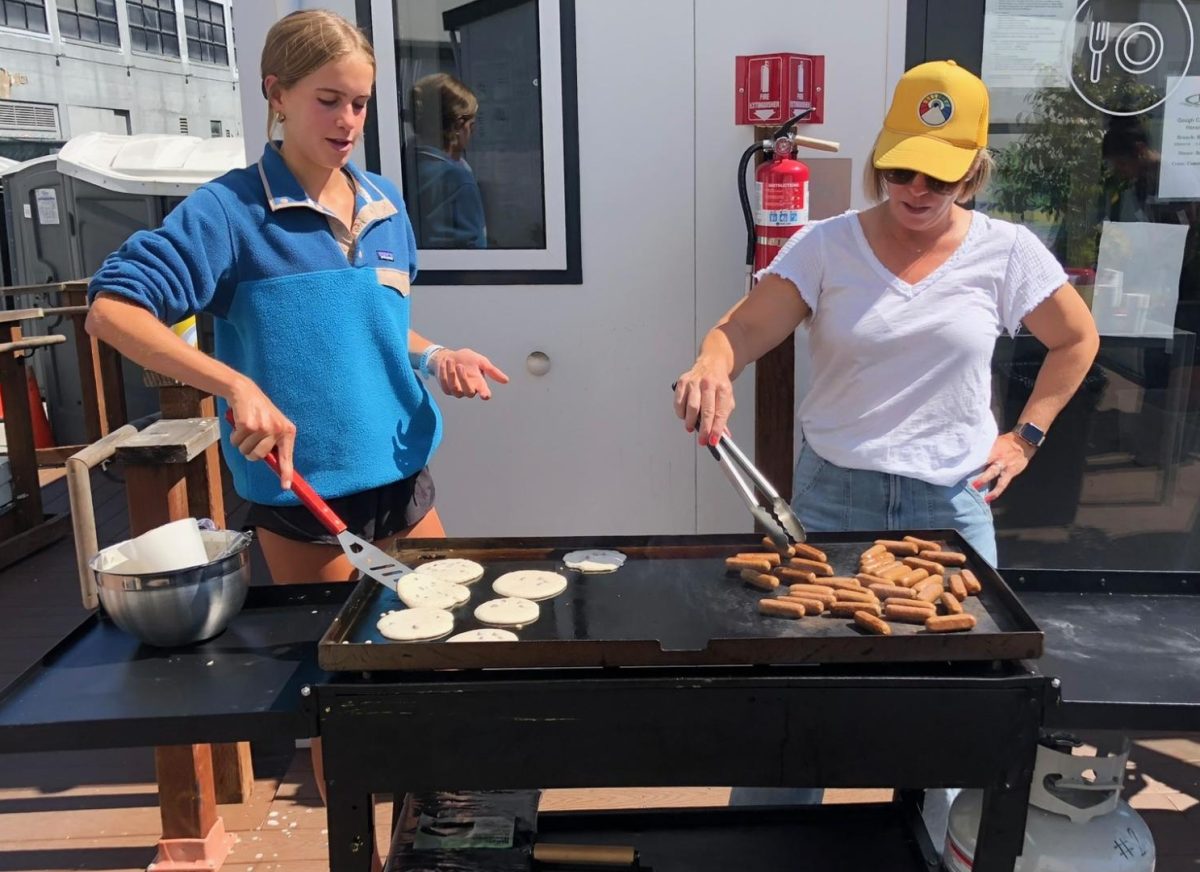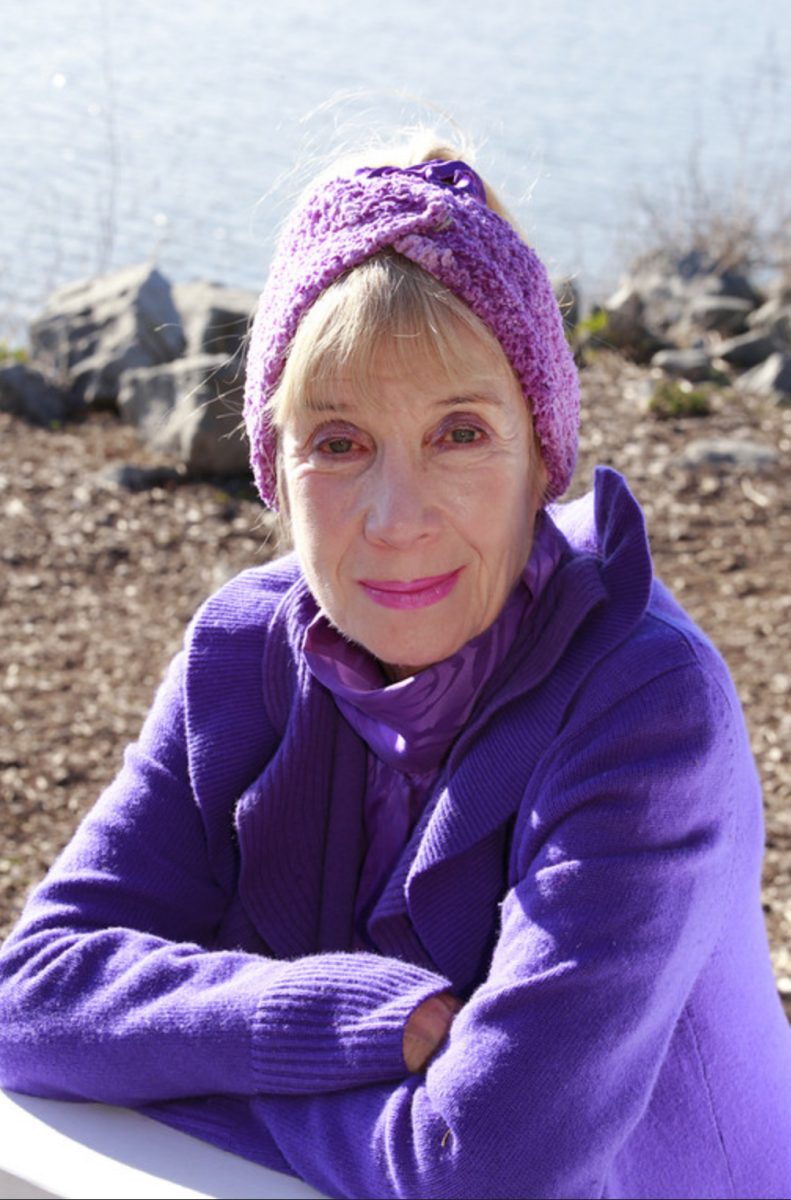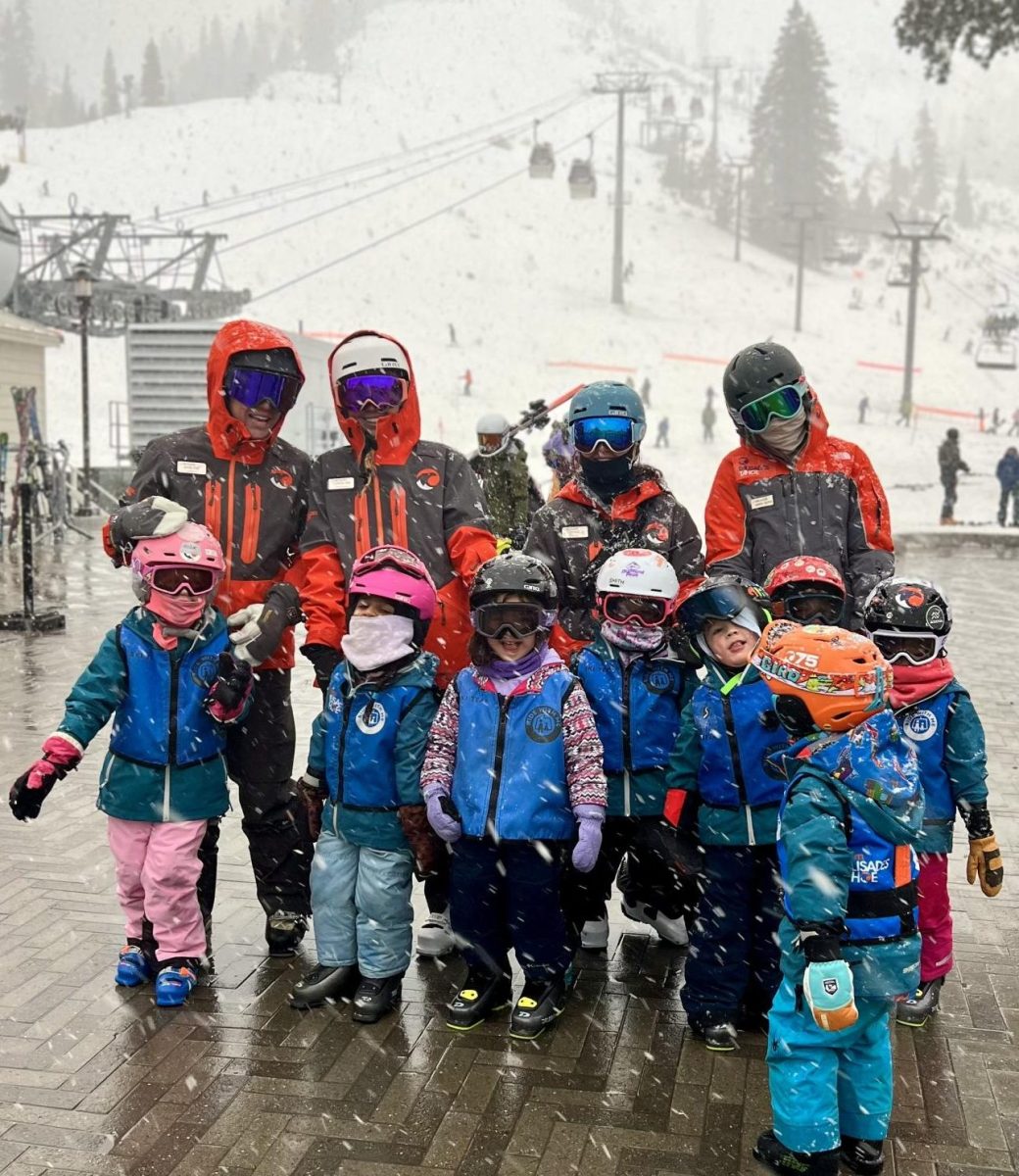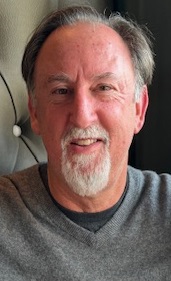
Driving home from a drama bonding night, junior Kelsey Peltz yielded onto Tiburon Boulevard and was T-boned by an oncoming car. As a result, both cars were totaled but there were no major injuries.
“911 was immediately called and they showed up really fast. I was freaking out, having a panic attack and thinking my parents were going to kill me. The cop really calmed me down and we all got checked out and they took care of everyone,” Peltz said.
According to the FBI’s Uniform Crime Report, Marin County is one of the safest counties in the nation. With a population of 256,802 people, out of every 1,000 people 1.8 of them will experience a violent crime. Tiburon has been ranked the third-safest city in California to live in, due to its low rates of assault, robbery, murder and vehicle theft, according to Niche.com, a data analysis website. This is in part due to Marin County’s large force of first responders. First responders, people designated or trained to respond to an emergency, are often underappreciated or taken for granted, especially in a wealthy and safe country like Marin, according to Peltz. According to FireRescue1.com, the United States is home to an estimated five million first responders, including firefighters, police officers and paramedics.
First responders are not just valuable in Marin alone, but also the rest of our country.
“Where we live is a really safe area, so everyone thinks that cops just don’t have anything to do, which is a very privileged and unjustified thing to say,” Peltz said.
The Central Marin Fire Department—whose main area of operations covers Corte Madera, Larkspur and much of Greenbrae—does more than just put out fires, despite what one may believe. Just one fire engine or ambulance will have personnel that cover a fraction of a huge range of specialties including hazardous material (hazmat) intervention, confined space rescue, trench rescue, paramedicine, helicopter operations and wildland firefighting.

Similarly, officers of Central Marin Police Department (CMPD) and the California Highway Patrol (CHP) put their lives on the line in a multitude of ways daily to keep citizens safe, and in return many personnel feel unappreciated. Officer Scott McKenna of CMPD has been on the force for a number of years and is currently the School Resource Officer for the Tam Union High School District. McKenna mentioned that sometimes the support from the community has been little to none.
“Sometimes social media or even the local news won’t make you feel supported and [make you feel like] you’re taken for granted,” McKenna said.
In addition to putting their lives on the line, many first responders miss out on milestone moments with their families.
Matt Cobb is the Battalion Chief for Fire Station 14 in Corte Madera. He has struggled in the past with the balance between family and work.
“We are gone quite a bit. I’m never home for my daughter’s birthday. I do everything I can to fight to be home for her, sometimes that meant leaving at 4:00 a.m. to fight a fire in Humboldt County. I always try to manage to be there,” Cobb said.
As a rescue worker for the public, it is Cobb’s first priority to help citizens in their communities.
“You do, in this career, certainly miss out on some of the most important times in your family’s lives because you need to be at someone else’s house at a very important time in their life, but it’s all worth it,” Cobb said.
With such a large number of public safety personnel and the immense range of jobs they each do, rescue workers often experience symptoms of psychological trauma which can eventually lead to the development of Post Traumatic Stress Disorder (PTSD).

“Firefighters are exposed to a lot continuously. A lot of the PTSD is not just one significant incident, but moderate to major incidents over a long period of time,” Cobb said.
First responders across the board have experienced ongoing trends and symptoms of PTSD, much like Cobb has seen. According to Psychiatry.org, several factors including longer periods of deployment, inexperience, close contact with corpses and longer shifts are associated with greater mental health challenges.
“We see things sometimes that we can’t unsee, horrible things. We have to deal with deaths, car accidents, suicides. We respond to those calls and we’re the first ones through the door,” McKenna said. “Those things have a huge impact on your life and you find out pretty quickly what you’re capable of absorbing and what you’re capable of sloughing off to maintain some sort of mental health balance,” said McKenna.
PTSD is now one of the leading mental health disorders in the nation, which affects 75 percent of first responders (almost four million individuals). PTSD is a real problem for first responders, and their jobs in society tend to be overlooked by the public, according to McKenna.
PTSD can often go unnoticed by the family members and people surrounding the first responders and may have a detrimental effect on them as well, simply through proximity. While first responders may experience increased depressive moods, hypervigilance, nightmares that prevent active sleep patterns and an increase in the use of substances like alcohol or tobacco, the people around them can become vulnerable to the same symptoms.
“These [traumatic experiences] are often things you can’t talk about with your family, you can’t talk about with people who haven’t been there because they tend to be so horrified by the story you’re telling so they can’t be there to support you,” Cobb said.

This has the potential to be very detrimental to family relationships because, according to Psychiatry.org, if a parent is suffering from PTSD, their children can begin to show similar signs.
“It’s when I walk through my front door after a 12 hour shift, after dealing with the suicide that I was just at, and having to hug my wife and my son and be normal. It’s hard to not have that affect my life,” McKenna said.
By having a law enforcement or public safety job in one of California’s safest counties, many people think that first responders don’t have much to do besides give speeding tickets and shut down high school parties, according to Peltz.
“I definitely thought ‘I hate the cops, they ruin everything fun, they have nothing to do in Marin’ but in the past month and especially with my car crash, I have had really good encounters with cops. They are good people and they do good things for our community, they do what they do in order to help the public. They’re not the bad guys,” Peltz said.
According to Peltz, many people, especially high school students, have this type of negative mindset about police officers and general first responders in Marin County.

Andy Barclay, the Public Information Officer from California Highway Patrol (CHP), addresses this stereotype.
“It really is an extremely large agency, more than people see. Going around and writing tickets is only the tip of the iceberg,” Barclay said.
Cobb describes how fulfilling it is for him and his fellow coworkers when their work is recognized by the public.
“You do feel like you’re taken for granted sometimes, but after a while after you feel that the public will do something really nice. That was really manifested recently after the Sonoma and Napa fires. The outpouring [of support] from the public was really incredible,” Cobb said.

According to McKenna, by simply understanding the range of scenarios first responders in Marin County and around the world are prepared to respond to, one can empathize with them and allow them to do their jobs more easily.
“That’s what gets me up and out the door when the alarm goes off at 4:30 in the morning. It’s knowing that at any given moment, our alert tone may go off and I’m going to have the opportunity to help somebody that isn’t capable of helping themselves,” McKenna said.


